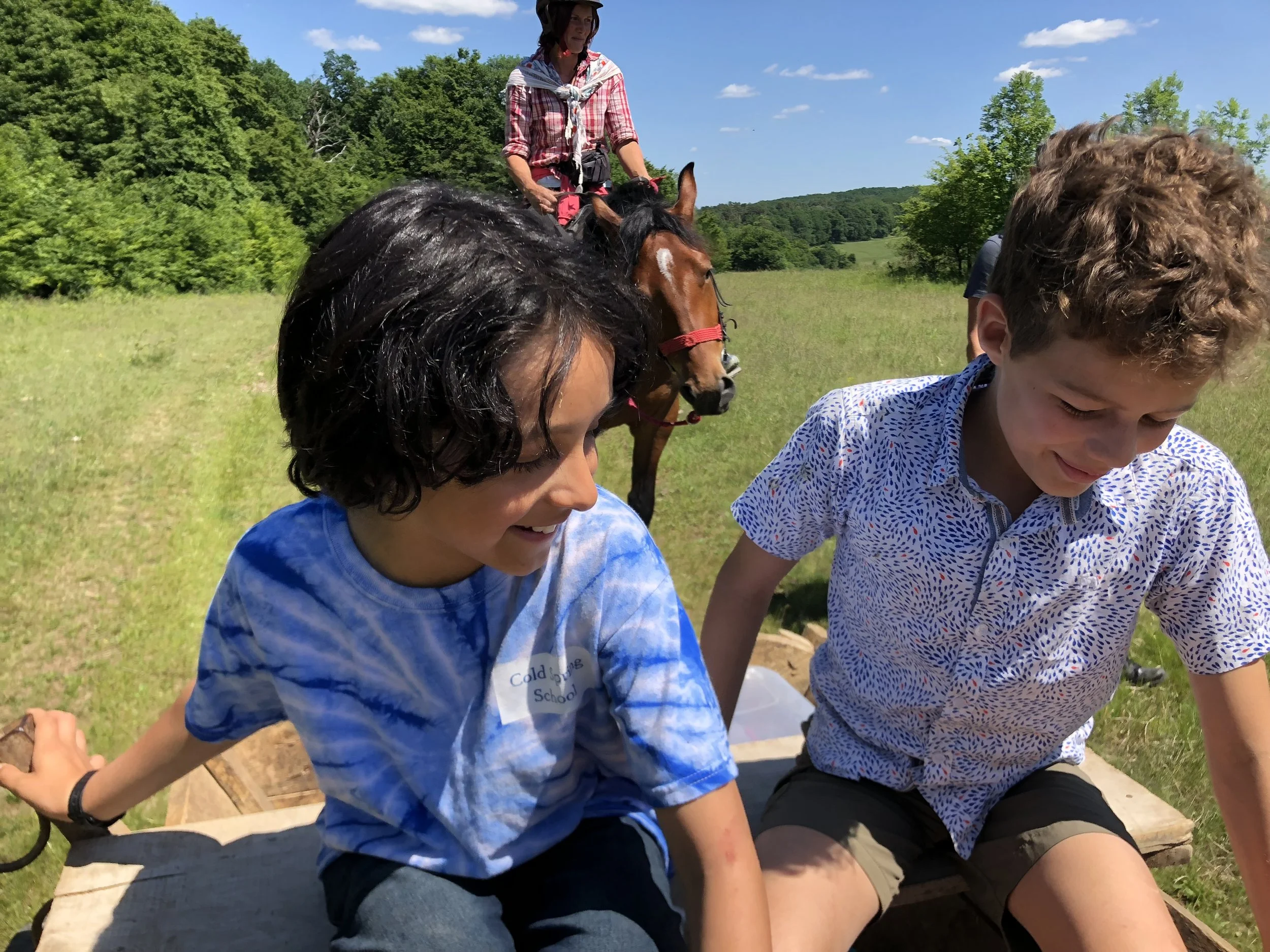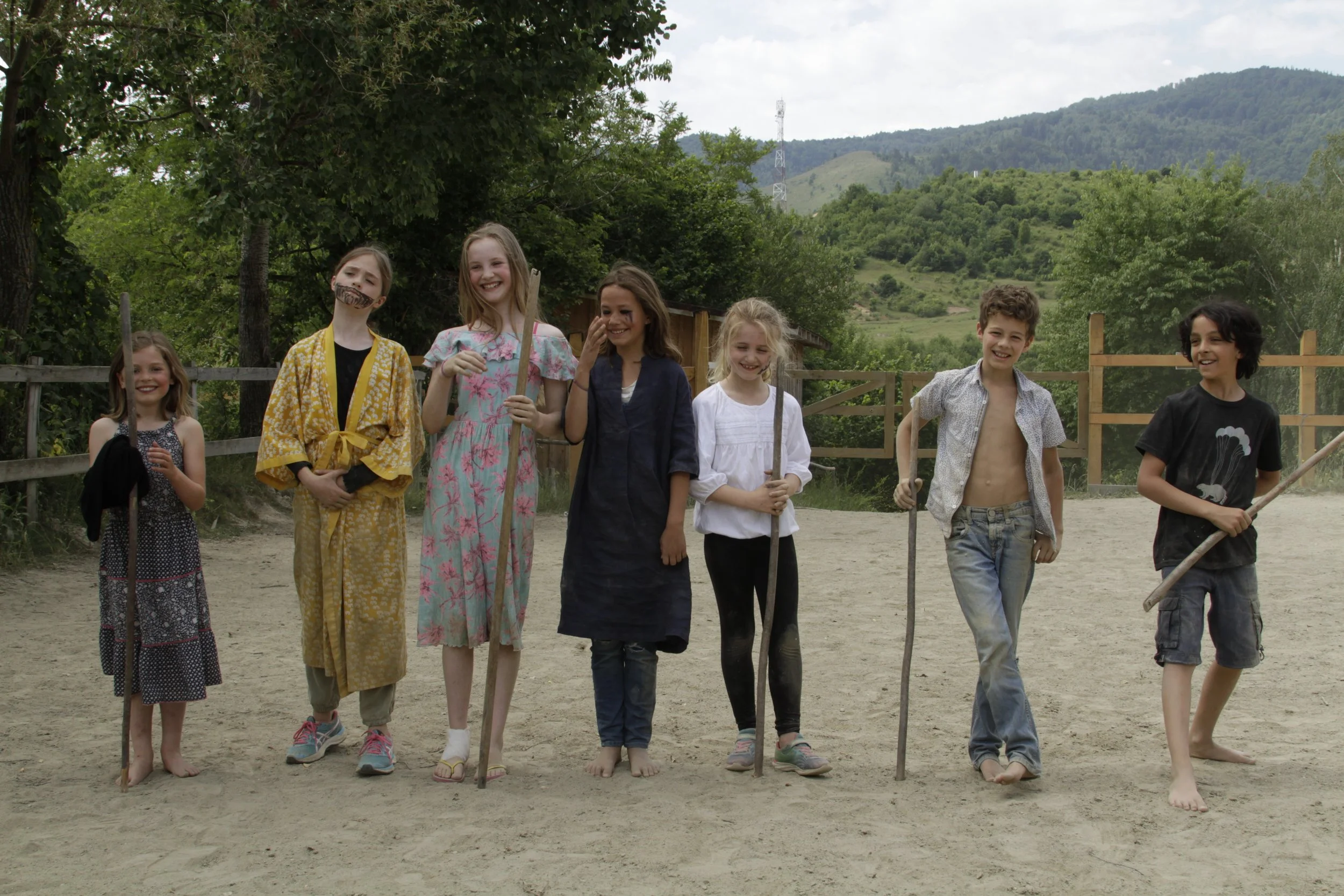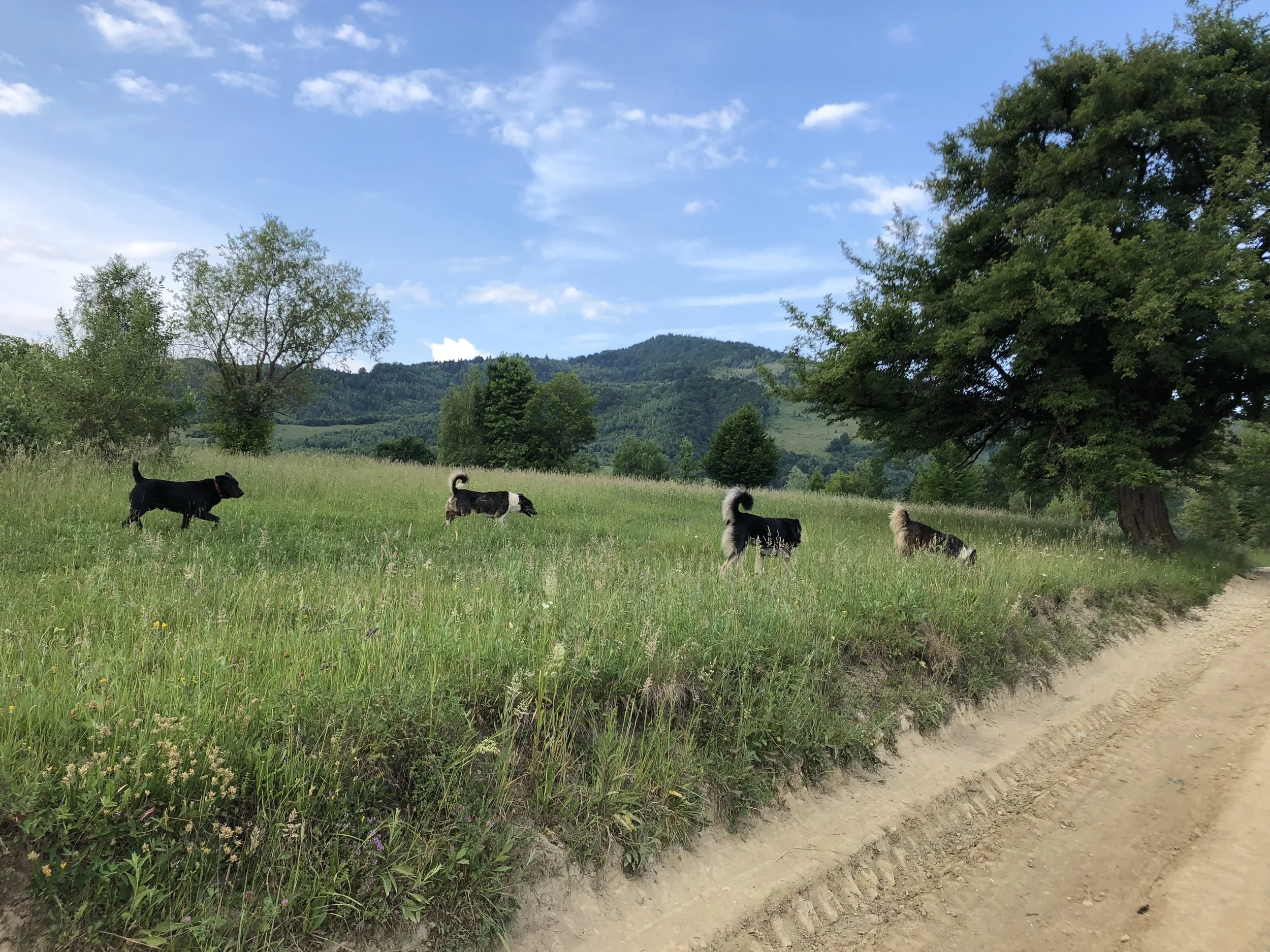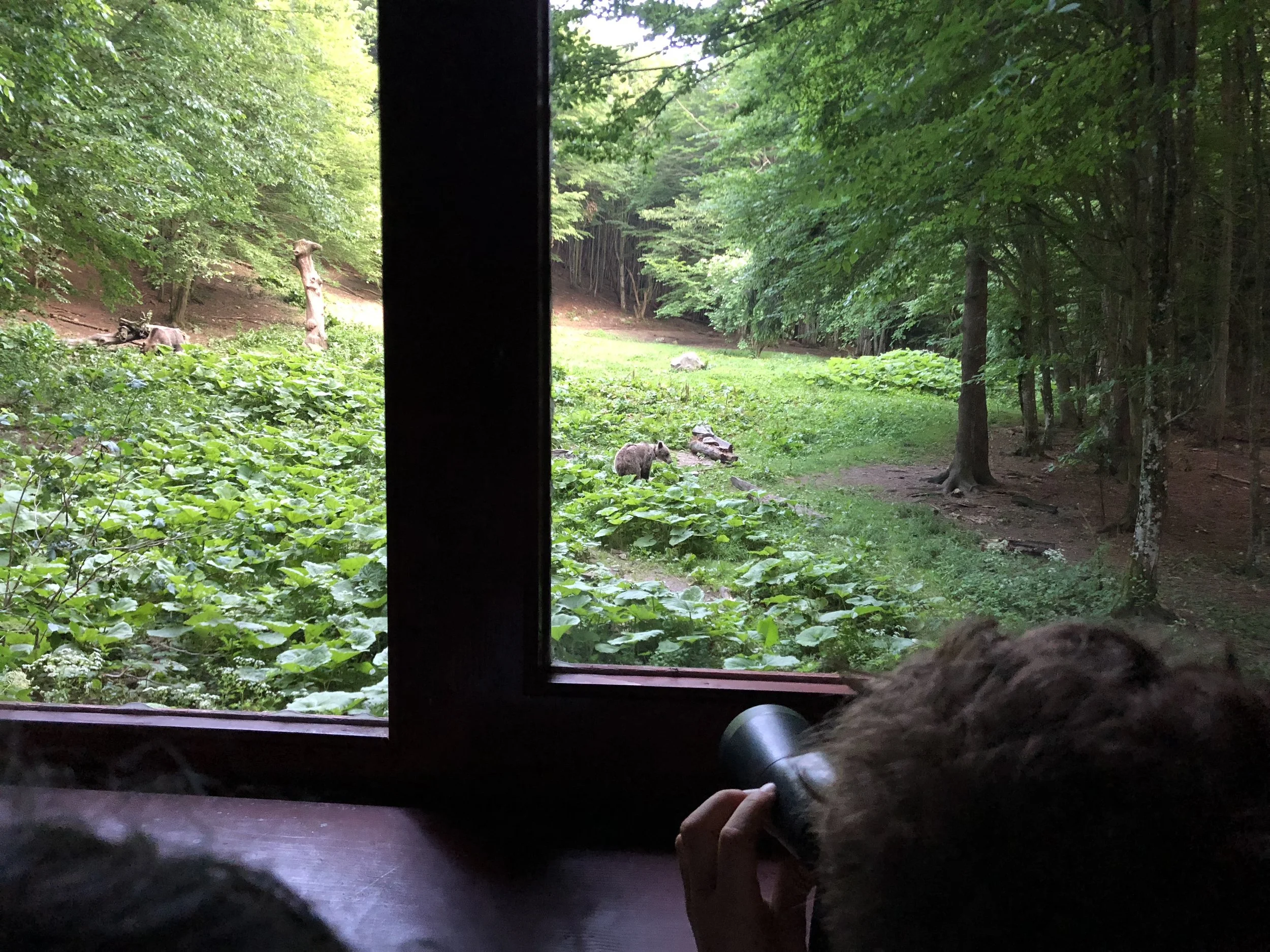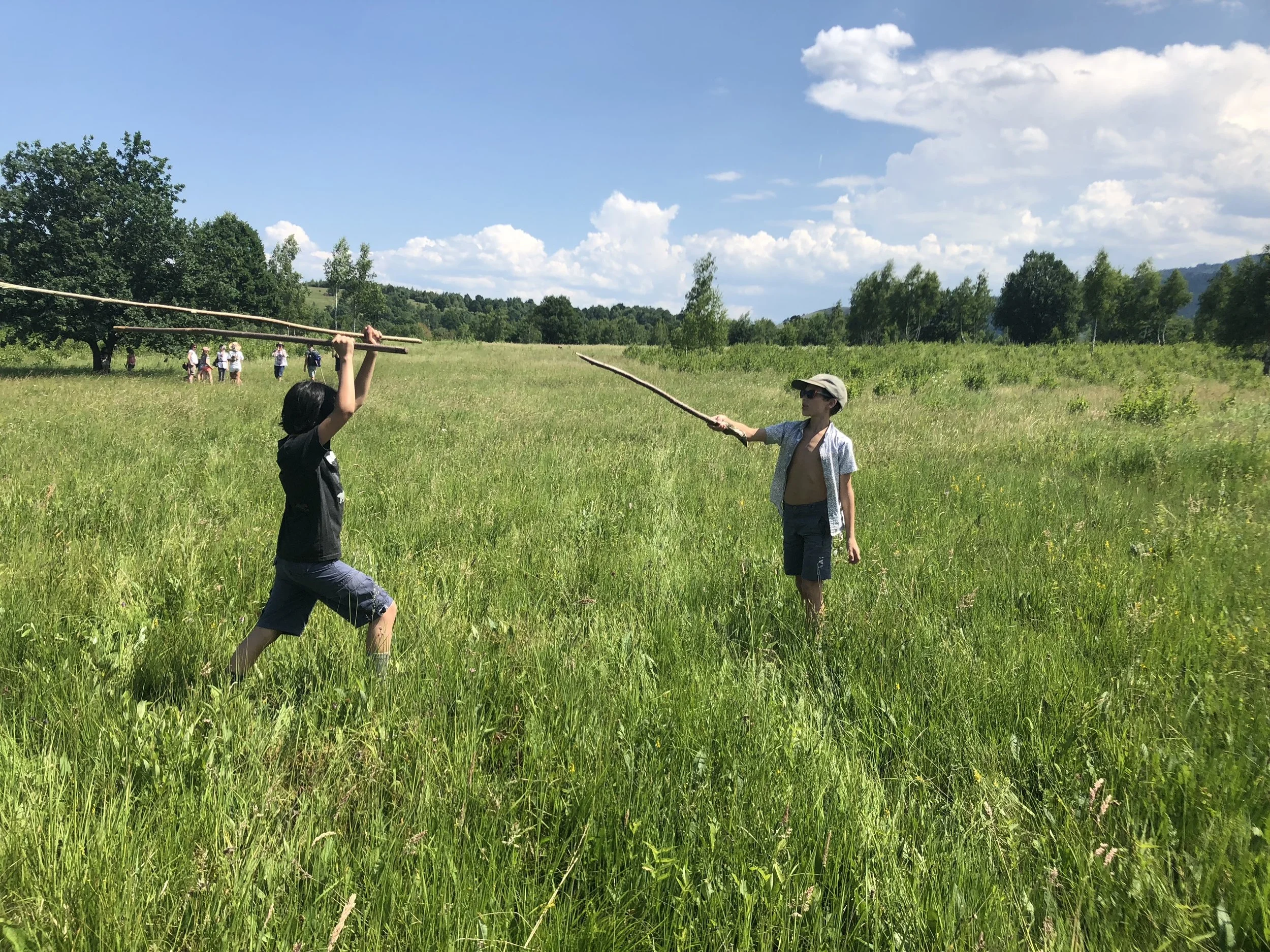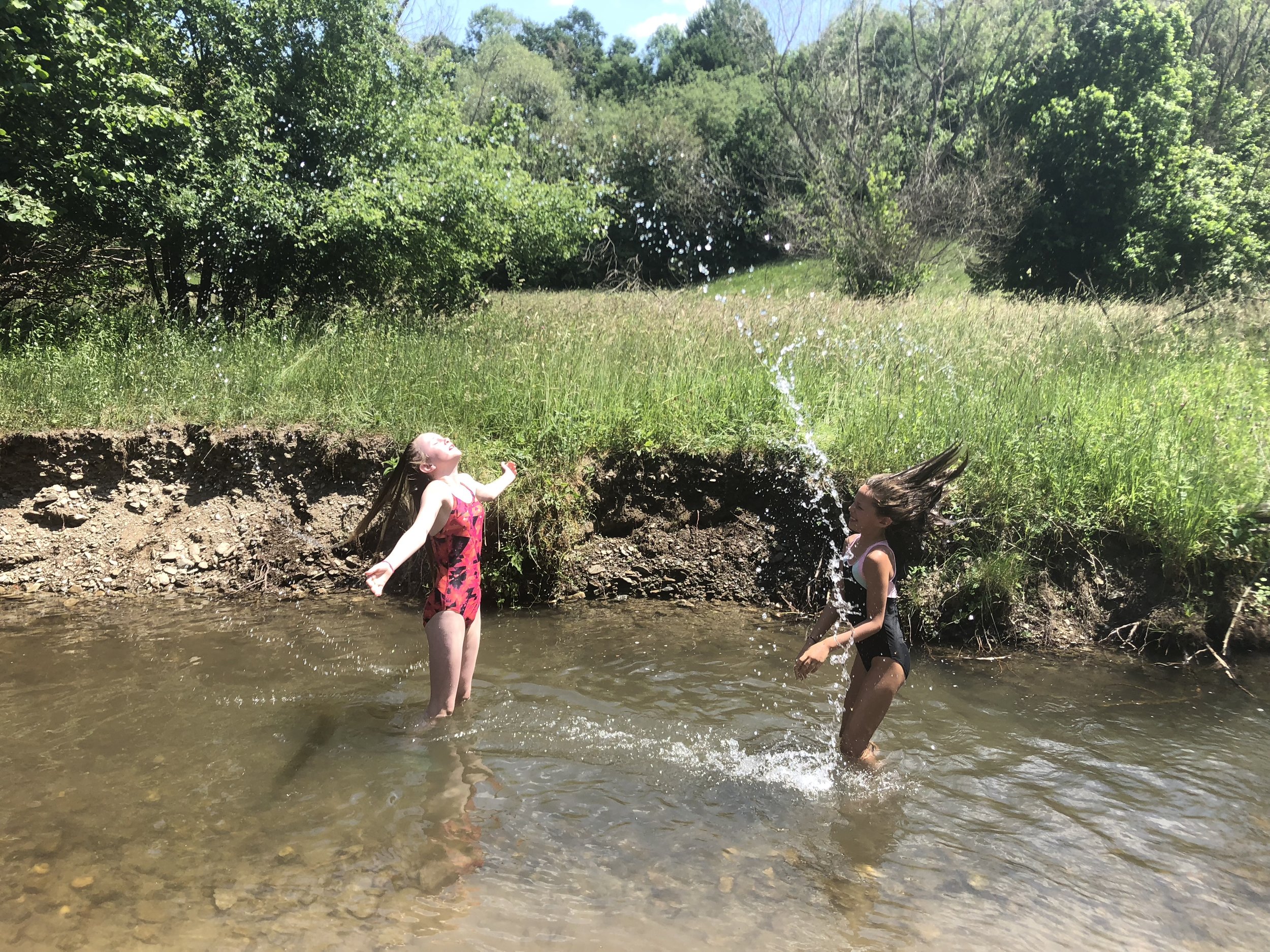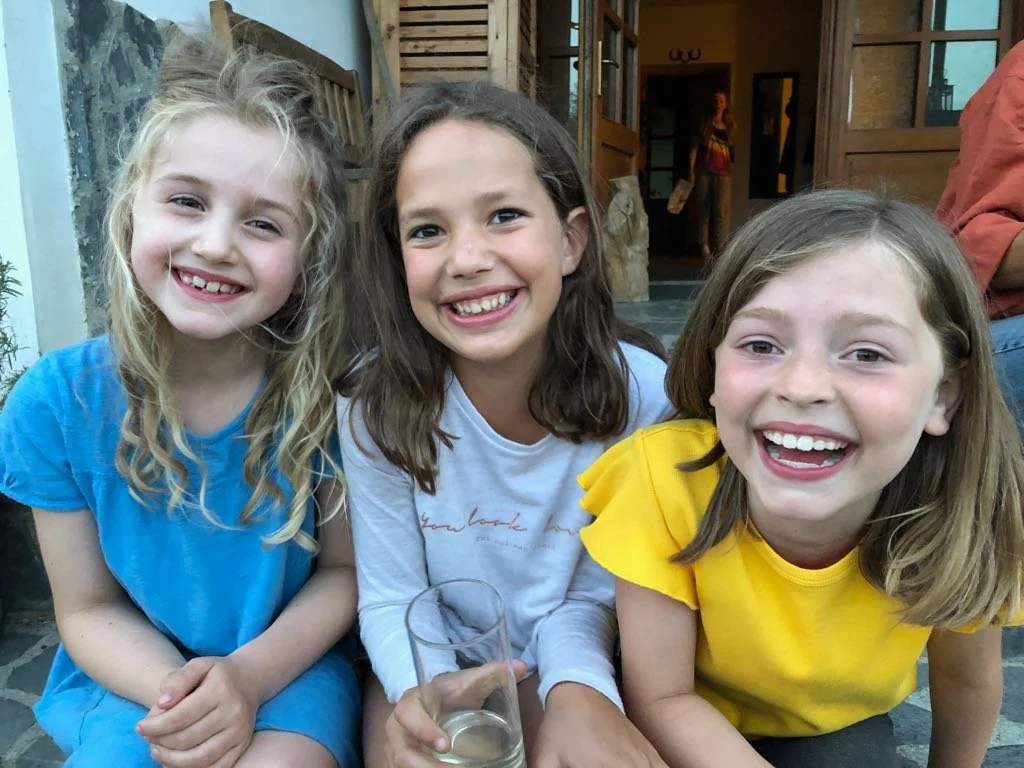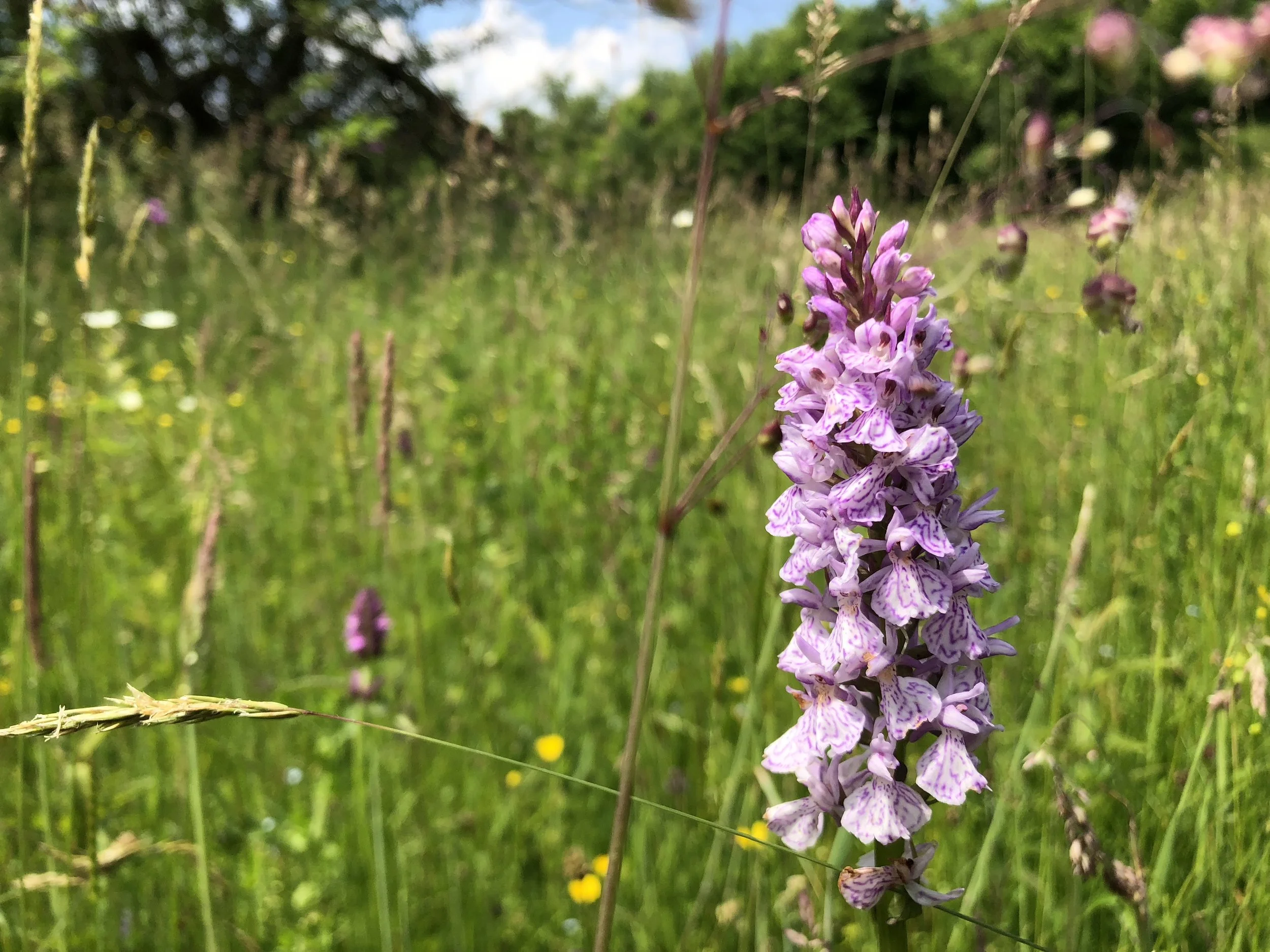
We Went on a Bear Hunt: Re-wilding the kids in rural Romania
Financial Times, 24 August 2018
For a nine-year-old boy brought up on Michael Rosen’s singsong picture book about the family going in search of a great brown bear, this was definitely a step up. “Hang on,” he said, “you mean, we’re going to look for real bears?” Yes, I said. “Dangerous ones?” Yes, I said. “And you’re taking me?”
I enjoyed playing the badass mum who thought nothing of exposing her child to potential predators over the half-term break. But that wasn’t quite the full picture. We had been invited on a group “re-wilding” trip to Transylvania – and the fact that I wouldn’t be solely responsible for my son’s safety while out looking for bears was part of the attraction. We would meet German wildlife biologists Christoph and Barbara Promberger, and learn about their vision of creating a National Park in what is now recognized as Europe’s last pristine wilderness. The plan was to climb trees, swim in rivers, go screen-free – and re-discover our place in an ecosystem in which we are not the only ones at the top of the food chain.
During the drive from Bucharest airport, I was badgered by regular requests for a phone from my son and the only other boy on the trip. “No screens, remember?” I told them. They slunk away, then chatted animatedly for four hours about the games they would have played if they had had a screen. “It’s a step in the right direction,” we adults murmured. Then we ducked down behind the high seat backs to check our emails.
We reached Cobor in the dark, aware only that the last several miles had been on an unpaved road. It wasn’t until the next morning when I stepped out to find the village filled with cows and dust that I began to understand we’d travelled back in time as well as to somewhere remote.
These villages in southern Transylvania are Saxon in origin – Germans having been invited to settle here in the 12th century to help buffer what was then part of the Hungarian Empire from Tatar and Turkish attack. Each of the houses lining the single road had a front door for humans and a larger set of double doors for animals. As I watched, the large doors swung open and each family’s cows and goats trotted out, joining the local shepherd leading them up to the pastures. In the evenings, the shepherd would bring them down again, the animals filing off through their respective doorways without needing to be told. To all intents and purposes, life here was still medieval.
I headed off for a run. I passed an elderly couple going to work with a pitchfork and a scythe. Cuckoos called to one another from the woods. Soon I found myself surrounded by meadows, thick with waving grass-heads and an extraordinary, multi-tiered array of wildflowers. I waded in, chest deep, and suddenly had a vivid memory of being ten years old. Was I seeing, or smelling, flowers that I hadn’t seen since then? Later, I learnt that these meadows – never fertilized or sprayed – host over 700 species of butterflies. The UK, where species of butterfly have declined by 70 per cent since the 1970s, hosts just 59.
That morning our trip organiser, Jessica, began the process of re-wilding us. We led one another, blindfolded, around the collection of converted farm buildings that made up our guesthouse, simple and elegant rooms full of hand-hewn wood. Our sight disabled, our other senses went into overdrive. Afterwards we all babbled drunkenly about the smell of the hay and the herbs and what it felt like to put one’s hand beneath a dripping outdoor tap. “We don’t just have five senses, by the way,” said Jessica. “We have fifty-four.” Did anyone know what they were?
Intuition, we offered up. And proprioception. After that, we got stuck.
“A sense of humour?” we suggested.
“A sense of doom?”
The next day we took our list of fifty-four senses and headed up to the meadows on a pair of horse-drawn carts, the kids riding on hay bales, the rest of us walking alongside. The carts creaked and rolled. There were orchids everywhere. Every now and then the two boys would jump off the back of the cart to wage war with tall thistle-heads, then clamber on again. We passed the galvanised trailers of herders, guarding their horses from bears overnight. Our own horses neighed to their horses, and their horses neighed back. Huge Carpathian shepherd dogs bounded over to greet us. (Three of these gentle giants, we were told, can see off a hungry bear.) We picnicked in grass busy with grasshoppers and a yellow beetle with black spots I’d never seen before, the sound of horses munching hay at our backs and a vista of meadows and distant grey peaks before us. As the kids disappeared into the beech woods – camouflaged, just another indigenous species occasionally to be spotted flitting between the trees – Jessica talked about how humans have disengaged from their place in the web of life; how reconnecting with all the senses helps us step back in. Above us, a hawk cried. I became aware of a sense of pressure (the breeze on my skin), a sense of proximity (the next person, dozing beside me), a sense of belonging, a sense of the passage of time. I closed my eyes. Maybe, if I kept very quiet, I would get a sense of the earth, very slowly, rotating.
By the time we moved on to Sinca Noua, the village in the foothills of the Carpathian Mountains from which we would see the bears, we were well on our way to being wilded. An organic smallholding and equestrian centre, Equus Silvania is the home of the Promberger family. Seasoned riders can take multi-day horse treks from here. Our kids were content to look on in undisguised adoration as Christoph’s 14-year-old daughter, Cora, shot arrows at a target while galloping bareback and bare-footed. We feasted on polenta and cheese and downed shots of homemade plum brandy. Then we drove into the forest to meet the bears.
One of the reasons bears, wolves, lynx and boar have survived in Transylvania is that Ceausescu banned everyone from hunting except himself – and for 45 years the forests were left untouched. When he was deposed in 1989 other hunters moved in; and in 2004, large swathes of forests were given back to their rightful heirs who, keen to monetize their inheritance, brought in large-scale timber operations. Christoph and Barbara, Germans who came to Romania as PhD students and never left, saw that the habitat of the large predators they studied would be lost within a decade if nothing were done. “The forest really needs the large predators because they keep the whole system in balance,” Christoph explains. “They control the deer, which prevents overgrazing of the lower slopes, which allows the forest to re-grow. And when the forest re-grows, all the other species – the small mammals, the birds, the insects – can thrive. Carnivores are really important for everything else to survive.”
Funded almost entirely by private donation, the Foundation bids for hunting rights when concessions come up for auction – then bans hunting in those areas. It now controls hunting in 36,000 hectares and has purchased 21,000 hectares for full protection. It has also planted 1.6million trees, restoring the original ecosystem in over 600 hectares. Obviously, co-existing with bears and wolves comes at a risk – and there have been attacks on livestock in recent years. Romanian farmers use traditional methods to protect their sheep – keeping them bunched together rather than allowing them to spread out, for instance, so that their dogs can easily encircle them – and Christoph and his team are exploring new ideas, such as rimming the forests with electric fences. “You also have to re-educate the bears – make them scared of coming into contact with humans,” he says. “Shooting the bear is, of course, the absolute last resort.” Of course, we nod, of course.
We spill out of the minibus and meet our guide, a taciturn Romanian. We all notice the gun tucked into his pocket. In silence, we follow him alongside a gushing stream, between huge, gunnera-like leaves and across a rickety wooden bridge. On the edge of a clearing stands the hide. We all notice the large chunk taken out of one wall. “Some of the young bears are very…how you say… curious,” whispers our guide through a translator as we take our seats in the hide. First come the crows. We watch, impressed, as they swoop down to the scattered biscuits and proceed to stack them, one on top of the other, before flying off with their bounty in their beaks. After half an hour, the guide whispers, “Some bears coming.” All of us hold our breath.
Two cubs appear first – siblings, one and a half years old. They sniff the air, gambol and explore, cute as teddy bears. “Can they smell us?” we ask the guide in a whisper. “Yes,” he says, adding with a wink, “We stink.” The cubs eat, look around, eat some more. After about ten minutes, they prick up their ears and run off into the forest, bottoms bouncing. “A bigger bear is coming,” whispers the guide. We wait. We hold our breath. And then we watch, transfixed, as a bigger bear, an adult female this time, walks sedately into the clearing. Her fur is greyish with a darker ridge along her spine. She eats, and then she too pricks up her ears and runs away.
“A bigger bear is coming,” whispers the guide. Michael Rosen couldn’t have been happier with the repetition. We wait. We hold our breath.When a huge adult male lumbers into view, there are little gasps from the kids. Less than a dozen metres away, the bear rises onto its hind feet, towering to seven foot, front paws dangling and somehow looking like a bad taxidermy project. We watch, fascinated, as he thuds to the ground then stomps around, real and live and dangerous and in the same forest as us.
On the last day, I took another early morning run. Four Carpathian sheep dogs sleeping on the driveway drowsily lifted their heads. The next moment, they were trotting alongside me, tails up, noses down. Gratefully, I watched them for any signs of nervousness. Soon my breath found a rhythm. A warm breeze played on my skin. I had a sense of being part of it all – one animal among many, alive.
That evening, in a dilapidated barn with light falling through the slatted walls, the two boys performed a play. It was about the gods and involved a choreographed sword fight. Their bare torsos still showed traces of the mud they had smeared on themselves when we waded up-river the day before in search of beaver dams. At the end of the fight they grabbed handfuls of dust from the floor and, in one fluid movement, flung it into the air. Sun-lit dust motes spun in the shafts of light making parallel walls which, being gods, they could walk through, gathering golden specks on their hair, their skin, their tongues.
They were still boys, still human, still tame. But only just.
